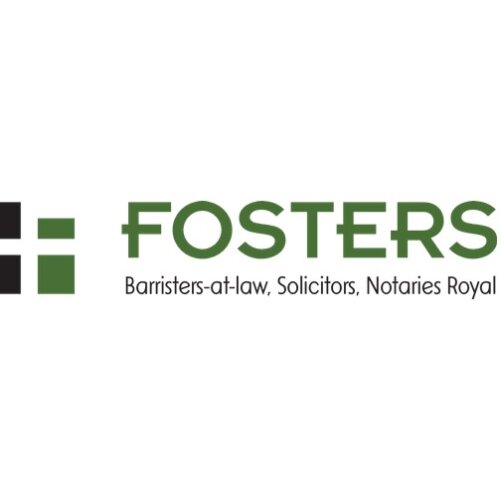Best Restructuring & Insolvency Lawyers in Castries
Share your needs with us, get contacted by law firms.
Free. Takes 2 min.
List of the best lawyers in Castries, Saint Lucia
About Restructuring & Insolvency Law in Castries, Saint Lucia
Restructuring and insolvency law in Castries, Saint Lucia, provides a legal framework for businesses and individuals who are experiencing financial challenges and are unable to meet their financial obligations as they become due. These laws are designed to promote fair and orderly management of insolvency proceedings, protect the rights of creditors and debtors, and facilitate opportunities for business recovery or, where that is impossible, an equitable distribution of remaining assets. The process often involves court supervision and specialized legal procedures, ensuring that all parties' interests are considered.
Why You May Need a Lawyer
You may need a lawyer specializing in restructuring and insolvency in several situations, such as:
- When your business is facing financial distress and you need to explore options to continue operating or to wind up operations in an orderly manner.
- If you are a creditor and want to recover money owed by a debtor who cannot pay their debts.
- When you need to negotiate with multiple creditors and require legal guidance on restructuring agreements.
- If you are at risk of personal bankruptcy and want to understand your legal rights and obligations.
- To ensure compliance with Saint Lucia’s laws and regulations during insolvency proceedings.
- For representation in insolvency-related litigation or court proceedings.
- If you are considering voluntary liquidation, receivership, or administration and are unsure about the process.
Local Laws Overview
The legal aspects of restructuring and insolvency in Castries, Saint Lucia, are primarily governed by the Insolvency Act and other relevant commercial laws. The Caribbean region, including Saint Lucia, has adopted certain model laws to ensure harmonization and protection for local and foreign creditors.
Key aspects of local laws include:
- Formal Insolvency Processes: The Insolvency Act outlines the commencement and administration of insolvency proceedings, including liquidation (winding up), administration, and company reorganization.
- Debtor Protection: Provisions are in place to give debtors certain protections, such as stays or freezes on creditor actions during restructuring negotiations.
- Creditor Rights: Creditor priorities and processes for lodging claims are addressed, ensuring creditors receive fair treatment according to statutory ranking.
- Personal and Corporate Insolvency: The law distinguishes between individual and corporate insolvency, providing separate rules and procedures for each.
- Director Duties and Liabilities: Laws cover directors’ obligations, warning against wrongful trading or mismanagement during financially distressed periods.
- Cross-Border Insolvency: Provisions help manage insolvency matters involving foreign companies or creditors, demonstrating Saint Lucia’s participation in the global commercial system.
Frequently Asked Questions
What is the difference between restructuring and insolvency?
Restructuring aims to help financially distressed businesses or individuals reorganize their debts and continue operating, while insolvency typically leads to liquidation or winding up because debts cannot be paid as due. Restructuring often avoids full insolvency through negotiated agreements with creditors.
What legal processes are available for businesses facing financial trouble?
Processes in Saint Lucia include voluntary administration, company reorganization, receivership, and liquidation. The choice depends on the company's financial situation and its prospects for recovery.
Can an individual file for bankruptcy in Saint Lucia?
Yes, individuals who are unable to meet their debt obligations can file for personal bankruptcy under the Saint Lucian Insolvency Act. This triggers a legal process aiming at fair asset distribution among creditors and potential discharge of debts.
How long does an insolvency process usually take?
The duration varies depending on the complexity of the case, the type of insolvency process (liquidation, administration, etc.), and court involvement. Some cases resolve in a few months, while others may take years.
What rights do creditors have in insolvency proceedings?
Creditors have the right to receive information, participate in creditors’ meetings, lodge claims, and, in some cases, challenge transactions or the conduct of insolvency practitioners in court.
How are assets distributed in insolvency?
Assets are distributed according to legal priority: secured creditors first, then preferential creditors, unsecured creditors, and finally shareholders, if anything remains. The process ensures as fair a distribution as possible.
What are the duties of directors during insolvency?
Directors must act in the company’s best interest, avoid wrongful trading, and cooperate with insolvency practitioners and the courts. Failing to do so can lead to personal liability or disqualification.
Can insolvency proceedings impact personal assets?
For company insolvency, directors’ personal assets are usually protected unless there is evidence of wrongful trading or personal guarantees. For personal insolvency, assets may be sold to repay creditors, subject to exemptions defined by law.
Is it possible to save a business from insolvency?
Yes, through restructuring or administration, a business may negotiate new arrangements with creditors, reduce debts, or secure new financing to continue operations. Early legal advice improves these chances significantly.
What should I do if I receive a statutory demand or winding-up petition?
Contact a lawyer immediately. You will need to act swiftly to review the claim, respond appropriately, and explore your legal options to avoid further legal and financial consequences.
Additional Resources
If you need further guidance or information in Castries, Saint Lucia, the following resources can be helpful:
- Ministry of Legal Affairs - Oversees courts and legal processes for insolvency matters
- High Court of Justice (Commercial Division) - Handles insolvency-related cases and applications
- Saint Lucia Chamber of Commerce, Industry and Agriculture - Provides business advice and can recommend professional services
- Licensed insolvency practitioners or accountants - Provide financial advice and assist with insolvency filings and procedures
- Local law firms specializing in restructuring and insolvency - Essential for representation and expert advice
Next Steps
If you are experiencing financial difficulties as an individual or a business in Castries, Saint Lucia, it is important to seek professional legal advice as soon as possible. An experienced restructuring and insolvency lawyer can help you review your finances, explain your legal options, and guide you through the process with the least possible risk and disruption. To proceed:
- Assess your financial position and gather relevant financial documents.
- Contact a lawyer or insolvency practitioner for an initial consultation.
- Discuss your circumstances openly to determine the best legal route, whether restructuring, liquidation, or other alternatives.
- Act early, as options often dwindle as financial distress increases.
Taking prompt action with the help of an expert can protect your interests and achieve the most favorable outcome under Saint Lucia’s legal system.
Lawzana helps you find the best lawyers and law firms in Castries through a curated and pre-screened list of qualified legal professionals. Our platform offers rankings and detailed profiles of attorneys and law firms, allowing you to compare based on practice areas, including Restructuring & Insolvency, experience, and client feedback.
Each profile includes a description of the firm's areas of practice, client reviews, team members and partners, year of establishment, spoken languages, office locations, contact information, social media presence, and any published articles or resources. Most firms on our platform speak English and are experienced in both local and international legal matters.
Get a quote from top-rated law firms in Castries, Saint Lucia — quickly, securely, and without unnecessary hassle.
Disclaimer:
The information provided on this page is for general informational purposes only and does not constitute legal advice. While we strive to ensure the accuracy and relevance of the content, legal information may change over time, and interpretations of the law can vary. You should always consult with a qualified legal professional for advice specific to your situation.
We disclaim all liability for actions taken or not taken based on the content of this page. If you believe any information is incorrect or outdated, please contact us, and we will review and update it where appropriate.










